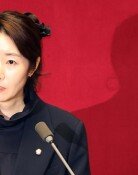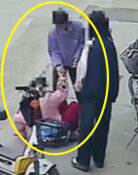Koreas Ruling Party Tries to Limit the Market Share of Pro-opposition Newspapers
Koreas Ruling Party Tries to Limit the Market Share of Pro-opposition Newspapers
Posted March. 01, 2005 22:44,
In its 2004 Human Rights Report released on February 28, the U.S. State Department called North Korea an authoritarian country under the absolute rule of National Defense Committee Chairman Kim Jong Il, in which the family of Kim remains as an idol.
The report, which compiled and summarized the human rights situation in some 70 countries, is the first report since President George W. Bush spoke of a spread of freedom as a target of U.S. diplomacy in his second-term inauguration speech in January this year.
The report pointed out that 150,000 to 200,000 political prisoners are dying from torture, starvation and diseases in prisoner camps in the North. It also added the general public is deprived of the right to choose its government and to have open trials.
The report went on to say that the revision of the Norths constitution maintained its system as the worst human rights violation. The revised constitution of April 2004 stipulates that traitors who commit the most serious four crimes, including rebellion and leakage of secrets, are subject to the death penalty.
It pointed out that women from North Korea, Myanmar, Vietnam and Russia are trafficked to China and end up working in hostess bars or being forced to become mail-order brides, and said that women of some countries are not given sufficient protection of their human rights. In particular, the report quoted a media report claiming, Female North Korean defectors are sold for 38 to 150 dollars in China.
It commented on the human rights situation in South Korea as well, saying, Human rights are generally respected and the judiciary is independent.
However, it pointed out that some police officers and government correction officials have violated human rights, and that authorities limit the freedoms of assembly and association for those who are considered supporters of communism and the Norths regime, according to the National Security Law.
The report evaluated the revised bill of the press law recently presented by the ruling Uri Party, saying, Due to the contents of the bill that considers three newspapers whose market share exceeds 60 percent as illegal, pro-opposition newspapers which have a large circulation can be affected negatively.
Seung-Ryun Kim srkim@donga.com







